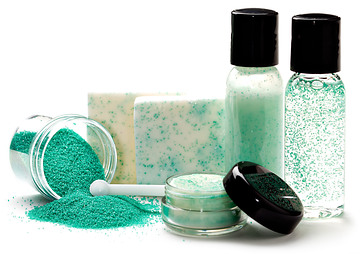
Did You Know That We Are Damaging The Environment When We Exfoliate With Microbead Products?
Microbeads came on the scene as a rounder, softer, more gentle way to exfoliate our skin, unlike ground seeds or shells, that could cause scratch skin and cause micro abrasions. However, most microbeads were made of plastic and are not biodegradable, causing ocean pollution and sewer problems. In terms of the environmental impact, they’re even worse than those plastic six-pack rings that everyone knows can strangle marine birds, dolphins and turtles. They account for a large portion of the pollution in the Great Lakes, and in many local water treatment plants nationwide, as well as in our oceans. President Obama signed The Microbead Free Waters Act in 2015 to be in effect by July of 2017 to curb the effects of this pervasive pollution. Good Riddance!
So, What Can We Use As An Exfoliant Instead Of Plastic?
As a more eco-friendly alternative, Jojoba beads are made of jojoba wax esters, from the pressed seeds of the Jojoba shrub (Simmondsia Chinensis). They break down easily and completely. And they aren’t harmful to fish or birds who may swallow them. They’re wonderful exfoliants in skin care products, as they roll away impurities and dead/dehydrated skin cells without scratching the skin surface.
Looking For A Great Selection Of Jojoba Beads? Look No Further!
We carry a huge assortment of Jojoba beads for use in soaps, cleansers and scrubs.
SHARE ON SOCIAL MEDIA
![]() Share this tutorial on Facebook
Share this tutorial on Facebook![]() Tweet about this tutorial
Tweet about this tutorial






